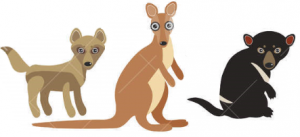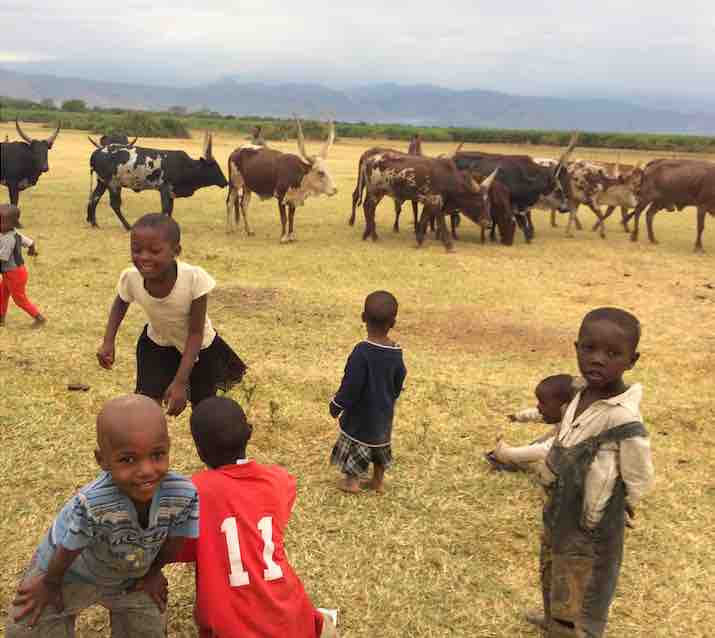 Nick Milano will be giving an Expanding Horizons lecture sponsored by VIDA. He will be making Australian lamingtons. RSVP here
Nick Milano will be giving an Expanding Horizons lecture sponsored by VIDA. He will be making Australian lamingtons. RSVP here
When: Thursday, February 1, 6-7pm
Where: Classroom 7, the vet school
 Nick Milano will be giving an Expanding Horizons lecture sponsored by VIDA. He will be making Australian lamingtons. RSVP here
Nick Milano will be giving an Expanding Horizons lecture sponsored by VIDA. He will be making Australian lamingtons. RSVP here
When: Thursday, February 1, 6-7pm
Where: Classroom 7, the vet school
Tropical forest landscapes are complex systems shaped by interacting ecological, social, and multi-dimensional processes. Complexity includes the dynamic ecologies, socio-political regimes, and diverse stakeholder perspectives that converge within any given tropical forest locale. While many who live and work in tropical forest landscapes have acknowledged the need to move away from soiled management, challenges persist for addressing the socio-ecological complexity of forest landscapes.
Attending to socio-ecological complexity means adopting new frameworks that capture the range of drivers, stakeholders and knowledge in tropical forest management. The 2018 International Society of Tropical Foresters Conference will bring together practitioners, academics, and forest users to explore the thought, experiences, and methods used for attending to the complexity of tropical forest landscapes.
More information can be found on the website: https://istf.yale.edu/2018-conference/breakout-sessions
 ZAWS has an exciting opportunity to learn about Avian Surgery in another hands on lab! The event will include a demonstration by Dr. De Matos followed by the opportunity for students to practice suturing, incisions, biopsies, placing esophagostomy tubes, toe amputation, celiotomy, and so much more!
ZAWS has an exciting opportunity to learn about Avian Surgery in another hands on lab! The event will include a demonstration by Dr. De Matos followed by the opportunity for students to practice suturing, incisions, biopsies, placing esophagostomy tubes, toe amputation, celiotomy, and so much more!
Due to limited space and resources, unfortunately the lab will only be open to the first 20 dues-paying second, third, and fourth years.
Please wear scrubs/lab coats and bring gloves and your dissection kit!
Sign up through the email notification on the ZAWS listserv.
When: February 1st, 5:30-7:30pm
Where: Belinski Wet Lab, vet school

During this 1st annual event, ZAWS will be bringing a selection of diverse speakers, lecturing on topics ranging from the role of reproduction in conservation, the effects of plastic on biodiversity loss, and the importance of nutrition for wildlife conservation.
Featuring Keynote Speaker: Dr. Sharon Deem, Director of the Saint Louis Zoo Institute for Conservation Medicine
Veterinary Medicine in the Anthropocene Epoch:
The lecture will focus on the current challenges of the 21st century: minimizing the loss of biodiversity, feeding 7.6 billion people without causing too much harm to the planet, and mitigating the negative impacts of climate change on animal health. The lecture will be from the perspective of a wildlife veterinarian and her 20+ years of working on free-living wildlife health issues and with zoo collection animals at AZA accredited zoos. Dr. Deem will share stories from her work with elephants in Asia and Africa, turtle species from all over the world, and disease issues at the livestock–wildlife interface. Dr. Deem will also showcase what a veterinarian starting out can do for One Health.
Other speakers include:
Mariah Beck
Jason Sifkarovski
Zack Dvornicky-Raymond
Dr. Sara Childs-Sanford
Dr. Elizabeth Buckles
Dr. Robin Radcliffe
This lecture series will be followed by dinner and the keynote presentation.
Date and Time: Saturday, February 10, 2018, 12:30pm to 8pm
Location: Cornell College of Veterinary Medicine Atrium
Register here or through the email sent out on the ZAWS listserv.
What: A joint webinar sponsored by the Society for Ecological Restoration and the ATBC. You can sign-up to watch it by going to http://tropicalbiology.org/career-development/webinars/role-secondary-forests/.
When: Thursday, Dec 14, 2017 10:00 AM – 11:30 AM EST
More Details:
Secondary forest regrowth following agricultural land use represents a major feature of human-modified landscapes across the tropics. International interest is growing regarding the importance of secondary forests for biodiversity conservation, for large-scale reforestation programs, and for the role of these forests in mitigating effects of global climate change. In this webinar, researchers from different disciplines of social and natural science will discuss the importance of second-growth forests for conserving and restoring biodiversity, and recovering ecosystem functions and services. This webinar will address five key questions about the ecology, governance, landscape conditions, and social drivers of secondary tropical forests and the role these forests can play for conservation and restoration in the Anthropocene. The panel will include researchers from different disciplines of natural and social sciences that will discuss these aspects and pinpoint guidelines for future research and policies for conserving biodiversity and to restore degraded lands in human-modified landscapes across the world’s tropics.
Introduction: Why secondary forests? Why now?
Dr. F. Bongers, Ph.D., Senior Professor, Forest Ecology and Management Group, Wageningen University, Netherlands.
To what extent does second-growth forest represent an option for conserving biodiversity in human modified landscapes?
Dr. Robin Chazdon (forest ecologist), Professor Emerita, University of Connecticut, USA; Executive Director ATBC.
What are the key issues affecting governance and the fate of secondary forests as a tool for large-scale forest restoration in the tropics?
Dr. Manuel R. Guariguata (forest ecologist), CIFOR, Lima, Peru.
What are the knowledge gaps for better understanding of forest regrowth in tropical human modified landscapes?
Dr. Laura C. Schneider (biogeographer), Rutgers, The State University of New Jersey.
How is natural regeneration affected by landscape conditions and how this is important for considering the role of NR in large-scale restoration?
Dr. Miguel Martínez-Ramos (forest ecologist): Instituto de Investigaciones en Ecosistemas y Sustentabilidad, Universidad Nacional Autónoma de México, Morelia, Michoacan, México.
What social factors are associated with forest regrowth and how are these changing?
Dr. Thomas Rudel (sociologist), Senior Professor of Human Ecology at Rutgers University, The State University of New Jersey.
How can strategic approaches to restoration maximize the benefits and synergies of secondary forests for conservation and ecosystem services?
 What: Megan Lee will be presenting on her experience working in Uganda through Expanding Horizons. She will be making Ugandan curried potatoes, beans, rice, and chicken stew. You can RSVP here.
What: Megan Lee will be presenting on her experience working in Uganda through Expanding Horizons. She will be making Ugandan curried potatoes, beans, rice, and chicken stew. You can RSVP here.
When: Thursday, November 2, 6-7pm
Where: S1-222 in the vet school
The Department of Entomology will be hosting their annual insect fair where visitors can interact with live insects, spiders, and other arthropods. The cost of entry is $3 per person. For more details, go to the entomology website or check out the video from last year’s Insectapalooza:
When: Saturday, October 28 between 9 am and 3 pm
Where: Comstock Hall